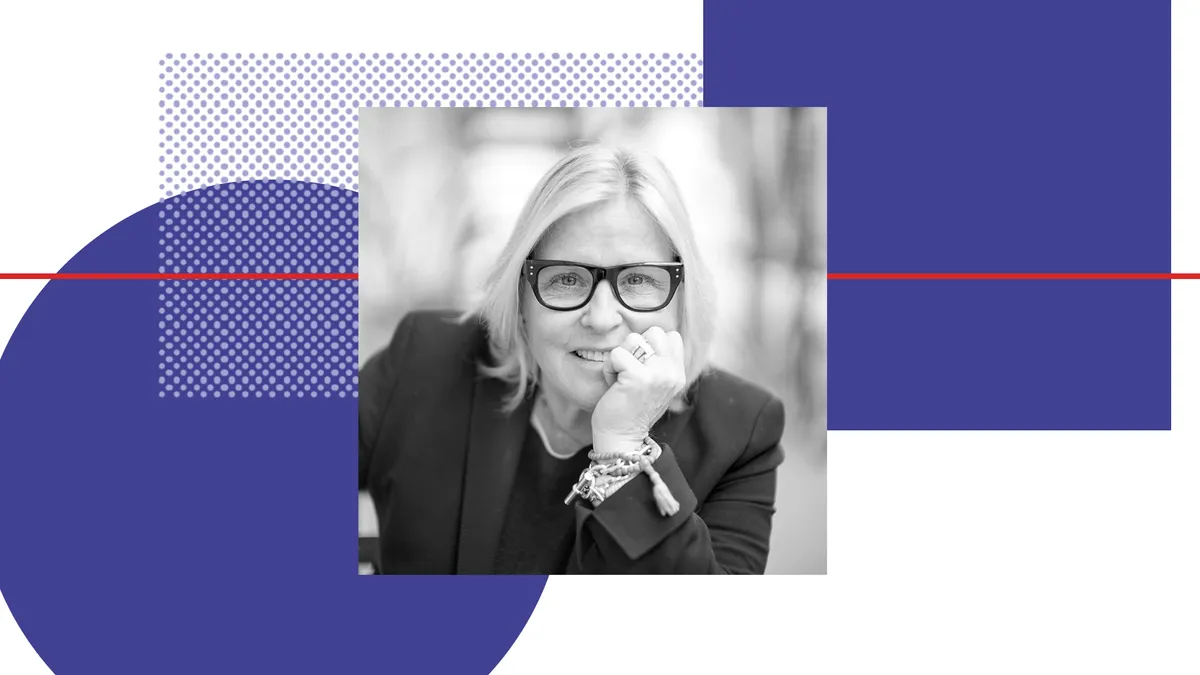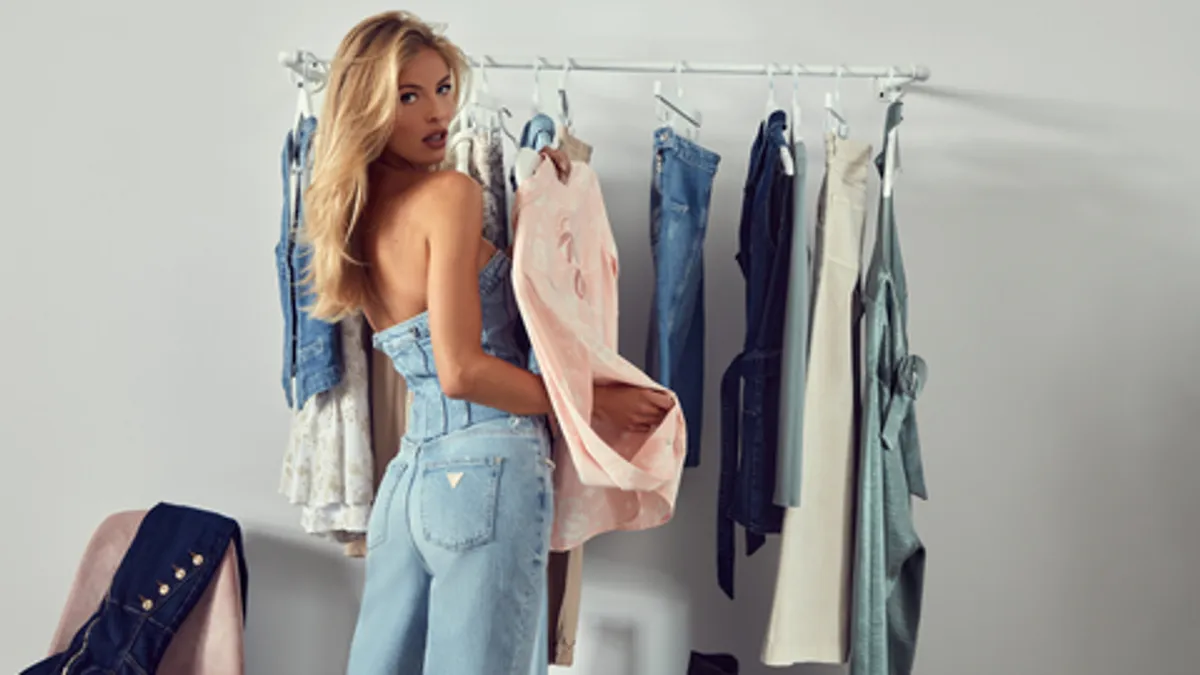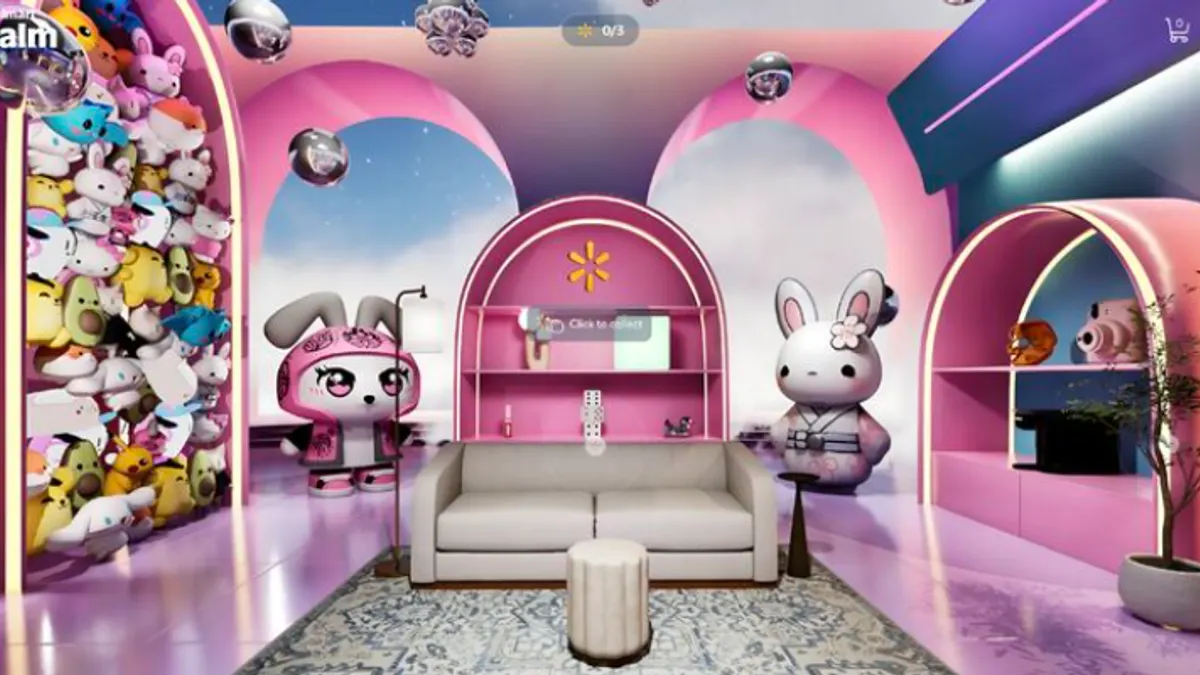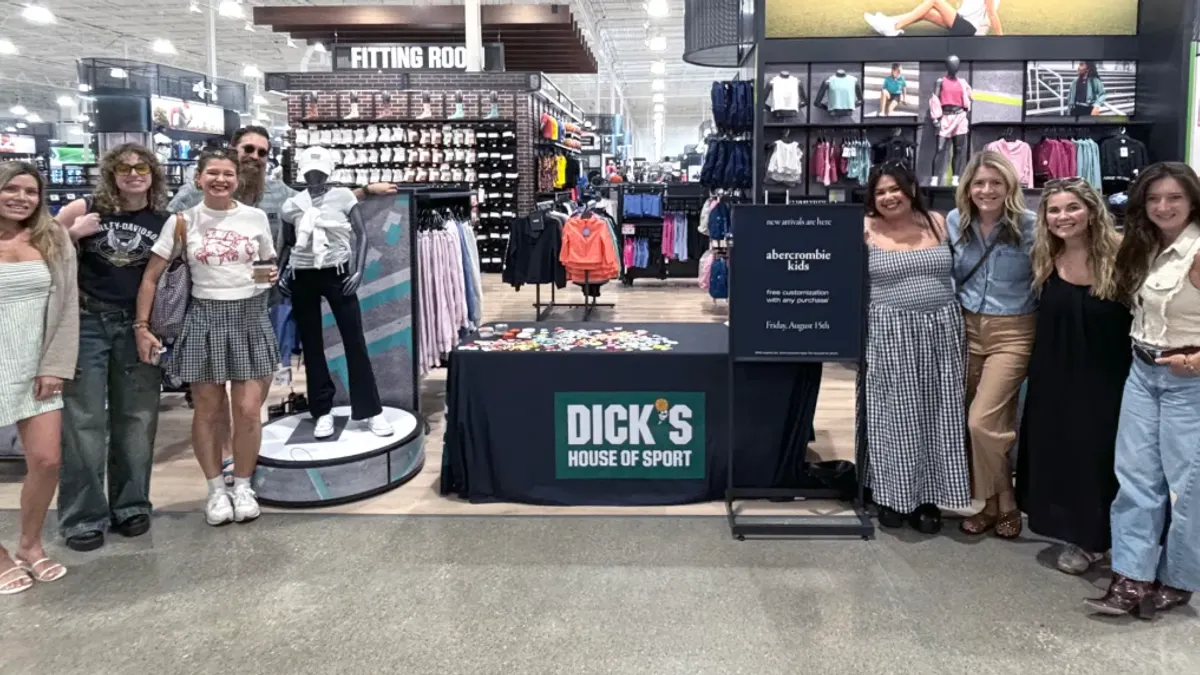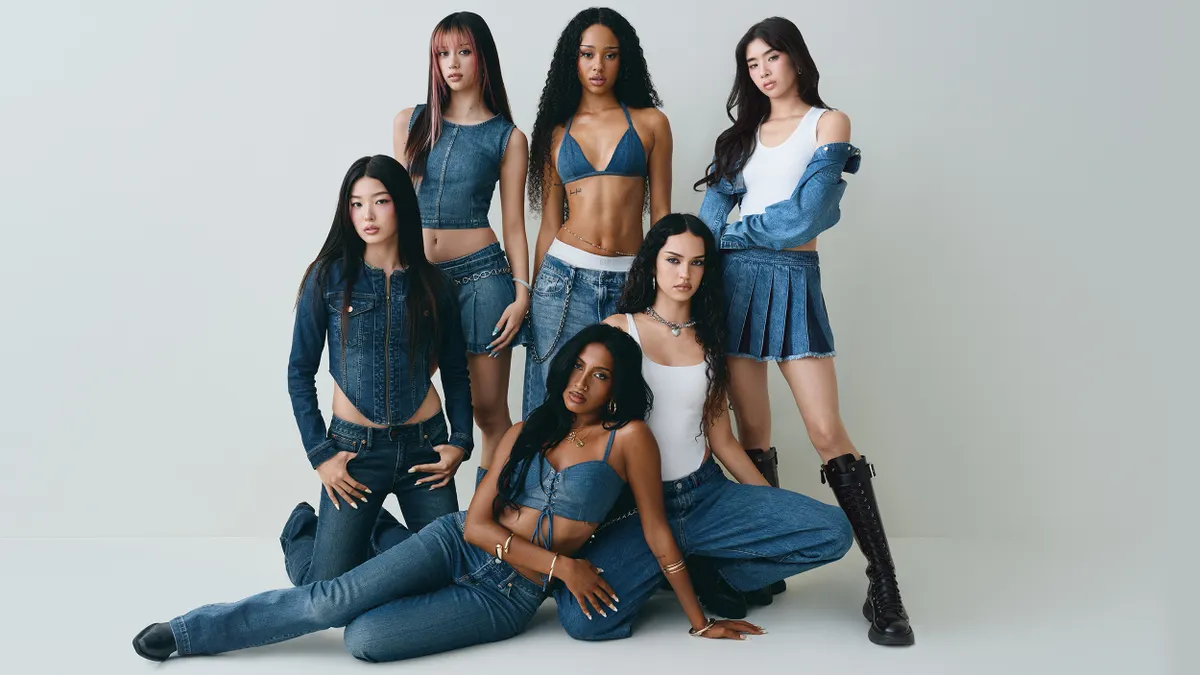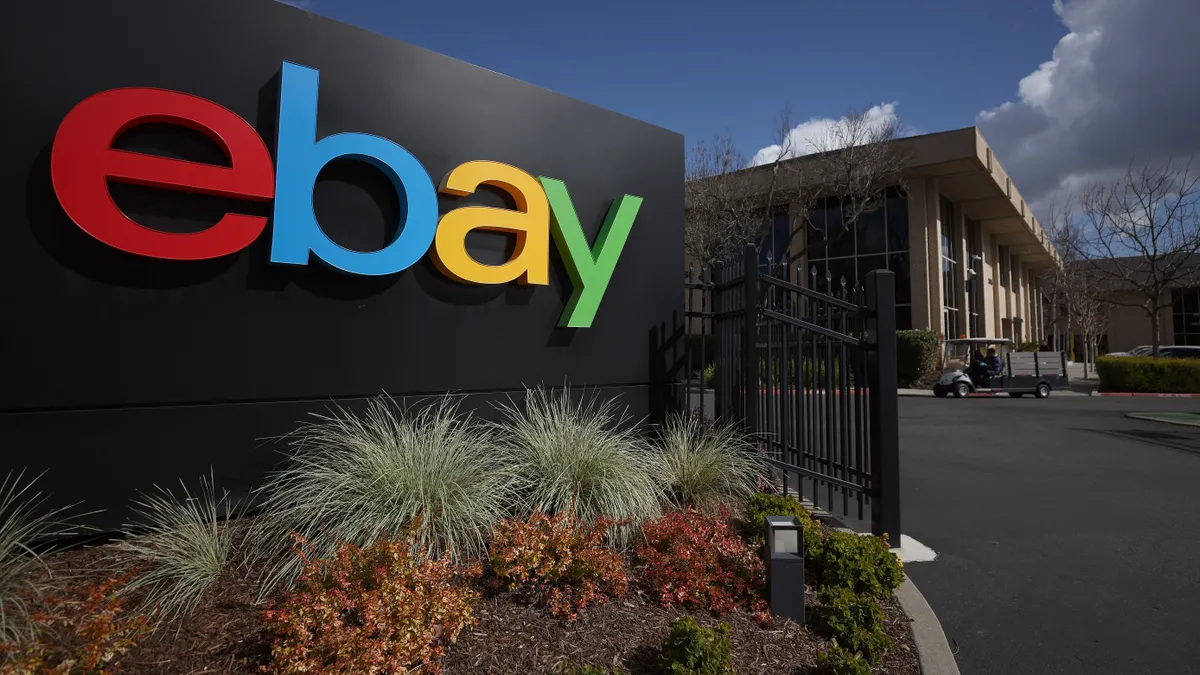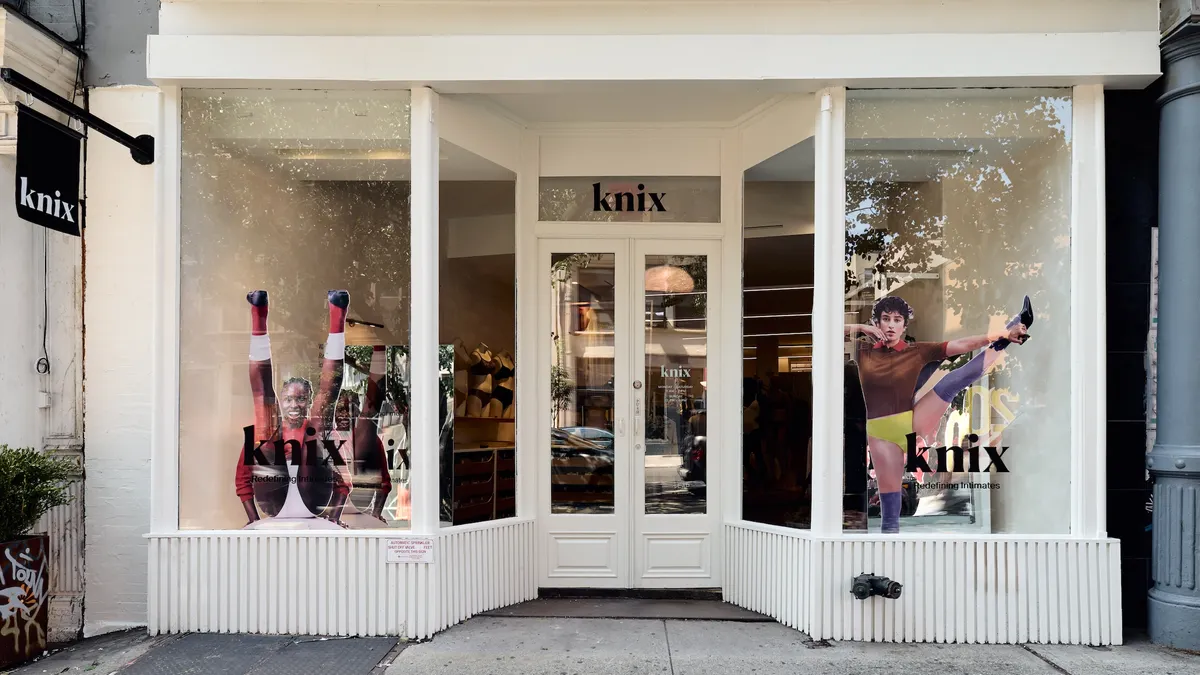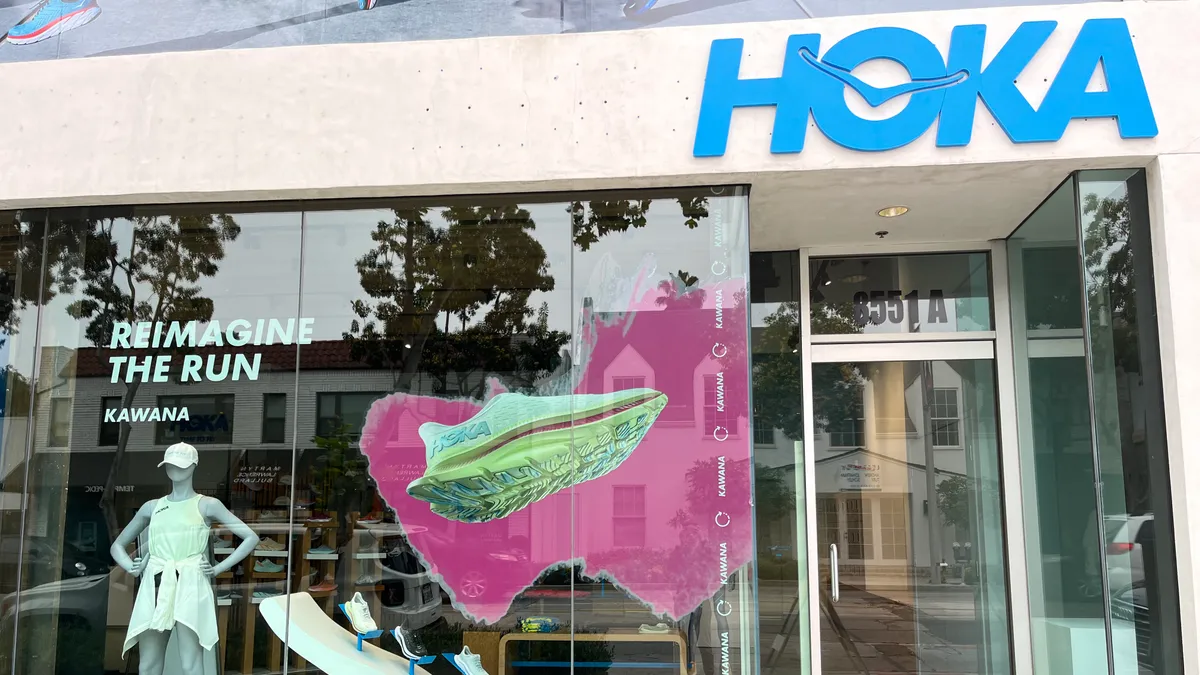Madison Reed could have delayed launching its men's product line. The company's online business "exploded" as the pandemic hit, according to CEO and founder Amy Errett, likely because customers were eager to switch their hair color routines to a subscription-based DIY program while salons were shuttered.
And now that stores are reopening, the retailer's hair salon color bars are also starting to meaningfully contribute to sales again. Madison Reed went into the pandemic with 12 color bars — physical locations where customers can get their hair done by colorists using Madison Reed's products — and plans to have 20 by the end of July, and 27 by the end of the year.
"We're going to be opening tons of them," Errett told Retail Dive, noting that the pandemic did not change her company's view of physical retail at all. The DTC brand announced about a year ago that it had plans to open 600 color bars by 2024 in a deal with consulting firm Franworth. At the time, plans were for 500 franchises and 100 company-owned locations.
"It's not going to be forever that she doesn't want someone else to color her hair sometimes," Errett said. "We're not wavering off of that thesis — and remember, we have a ton of customers that do both."
To help further fuel the omnichannel tendencies of its customers, the retailer has begun selling memberships out of its color bars, offering 30 days of unlimited roots services, which has gone "incredibly well" so far, Errett said. So why launch into a new category now?
For one thing, Madison Reed had been working on its men's line long before the pandemic began. Madison Reed Mr. was in the works for 15 months, Errett said, with around 125 guys working with the company in beta.
"The truth is that we could have put it off because so much is happening at our women's business," Errett said. "We didn't back off it because we knew that there was a huge opportunity here. Maybe timing is everything in life, but it definitely wasn't like, 'Let's just think about it and slap a product together.' We've had guys in a beta for a long time."
Madison Reed has been more fortunate than others with the pandemic, joining a short list of winners that includes select other DTC brands, and essential retailers like Walmart and Target. Where others have been faced with a liquidity crunch, Madison Reed has found surging sales and the appropriate time to launch a new product. But it's hard to separate that success from the pain it's caused thousands of others across the U.S.
"I'd trade the pandemic not happening any day," Errett said, despite all of the growth it's brought. "In this moment of massive anxiety for most people, massive fear, massive amounts of 'When is life going to come back again' — I just want us to be a respite to help you feel and look good."
Playing to your strengths
Madison Reed knows what it's good at — and doesn't plan to stray too far from that path. The launch into men's is an affirmation of Errett's belief that hair color still has a lot of room for Madison Reed to grow into.
"We're only in North America. This is a global business," Errett said, noting the company hasn't maxed out its growth in the category yet. "People ask me all the time: Are you going into color cosmetics? And I'm like, no. Are you going into hot tools as a business? No."
Errett has held firm to that positioning since the brand's founding, and it helps inform what categories the brand is interested in innovating on. Errett said she focuses on three key points when thinking about whether to launch in a certain area: if Madison Reed can make a better product than what's on the market, what size the market for the product is, and if the company can execute with a better overall experience.
"I think we checked all those boxes," Errett said of the men's hair color launch.
It also didn't hurt that Madison Reed already knew there was interest in a men's product from their customer base, including some men that currently buy Madison Reed's permanent hair color.
"I can't exaggerate how many times guys have said to me: 'Why don't you have a men's product?'" Errett said. "Or partners have said, 'I want my husband to color his hair or my partner to color their hair.'"
Madison Reed executives think the men's hair color market is already huge, and that they can grow it further by engaging with men who aren't interested in the products already on the market. Madison Reed Mr., which launched June 30, was therefore built as a combination of Madison Reed's current ingredients and some extras added purely for what that consumer wants.
The first problem to solve was the same as one Madison Reed has tackled in the women's space: "It's the same toxic ingredients that sit in women's hair color," Errett said.
Thus, the new men's product follows Madison Reed's safety formula standards — meaning it's made without eight harmful ingredients, including ammonia, parabens and titanium dioxide — which is something the company has built its brand around. The brand also added in ingredients to strengthen hair and made its men's color a demi-permanent grey blending product rather than the permanent hair color product it has for women.
"There'll be more tweaks as we go along. Maybe the box is wrong, maybe the instructions weren't as clear as they should be. I don't think that's true, we learned a lot in the beta, but it could be true," Errett said. She also pointed to the importance of feedback loops, highlighting an anecdote where a man testing the product asked her to tell customers not to wear a white T-shirt while coloring. Instructions for what to wear now come on the box.
Aside from its own channels, Errett said the company is in "deep conversations" about selling the men's product in wholesale, and likely with Ulta. Ulta is the company's exclusive wholesale partner at the moment, and Errett reiterated that Ulta is the brand's "main partner" as she talked about opportunities for the men's product.
That's the benefit of launching a product that has increased in value as the pandemic has ripped across the U.S. and customers have either opted or been forced to stay home.
"We're popular right now," Errett said. "We may not stay popular."
When everything happens at once
While men's had been in the works for a while, nobody at Madison Reed could have foreseen the pandemic and the disruption that would cause. Even though the brand has largely been successful during the crisis, that came with a cost. Within a week, Madison Reed's online volume had jumped to eight times its usual. For a further nine weeks, online volume stayed between 10 and 12 times its usual — and they don't call them growing pains for nothing.
"It's like taking a six year old developmentally and saying, 'Now you're 14, how's that?'" Errett said, noting the incredibly short timeframe of that jump in business. "Everything changed."
On top of handling increased order levels, the brand also had to deal with delays from shipping providers and getting product out of the Lombardy region of Italy, where it's manufactured, as both countries fought the coronavirus.
At the same time, the company moved 180 employees from closed color bars over to a call center, training them in just a week, while also adjusting to a new normal of remote work and the many challenges that presents (read: no school or daycare for kids).
"The things that make us different make us."

Amy Errett
Madison Reed CEO and founder
"There's a lot of adjustments of just how your culture survives," Errett said of the transition, noting that her own daughter — Madison Reed — is also home from school. "When I think back now, it's hard to even put our arms around the fact that all of this happened at once."
But it did. And just as retail was planning for how to get out of the pandemic, the killing of George Floyd by police officers caused widespread protests, and with them, calls for brands to have more diversity in their companies as a whole and in their leadership ranks. Errett said Madison Reed has always been focused on diversity, and the company is more than 50% people of color, but she plans to do more and "dig in on a deeper level" going forward.
"We have a saying internally: 'The things that make us different make us,'" Errett said. That doesn't mean there isn't room for more growth at the company, though.
"Even though we think that we've always had our eyes wide open, people that are white don't have their eyes wide open because they can't because they're not Black," Errett said, adding that she doesn't think diversity is a "fleeting issue" in beauty. "This isn't political. This is just what's fair."
As the beauty company moves forward in today's world, a more intent focus on diversity is just one of the things it's preparing for. Madison Reed is also looking out for the impacts of a possible second wave of the coronavirus, and planning more products, some of which are "not far off." In fact, one just launched this past Wednesday: a Color Therapy product intended to be used between colorings. But what won't change anytime soon is Madison Reed's firm identity as a hair color brand.
"We've established our core," Errett said. "This is what we're fantastic at. Why would we deviate into anything else instead of just being the best in this? And we are going to be the best in this."
A previous version of this story misstated the permanence of Madison Reed's men's hair color line. It is demi-permanent.



